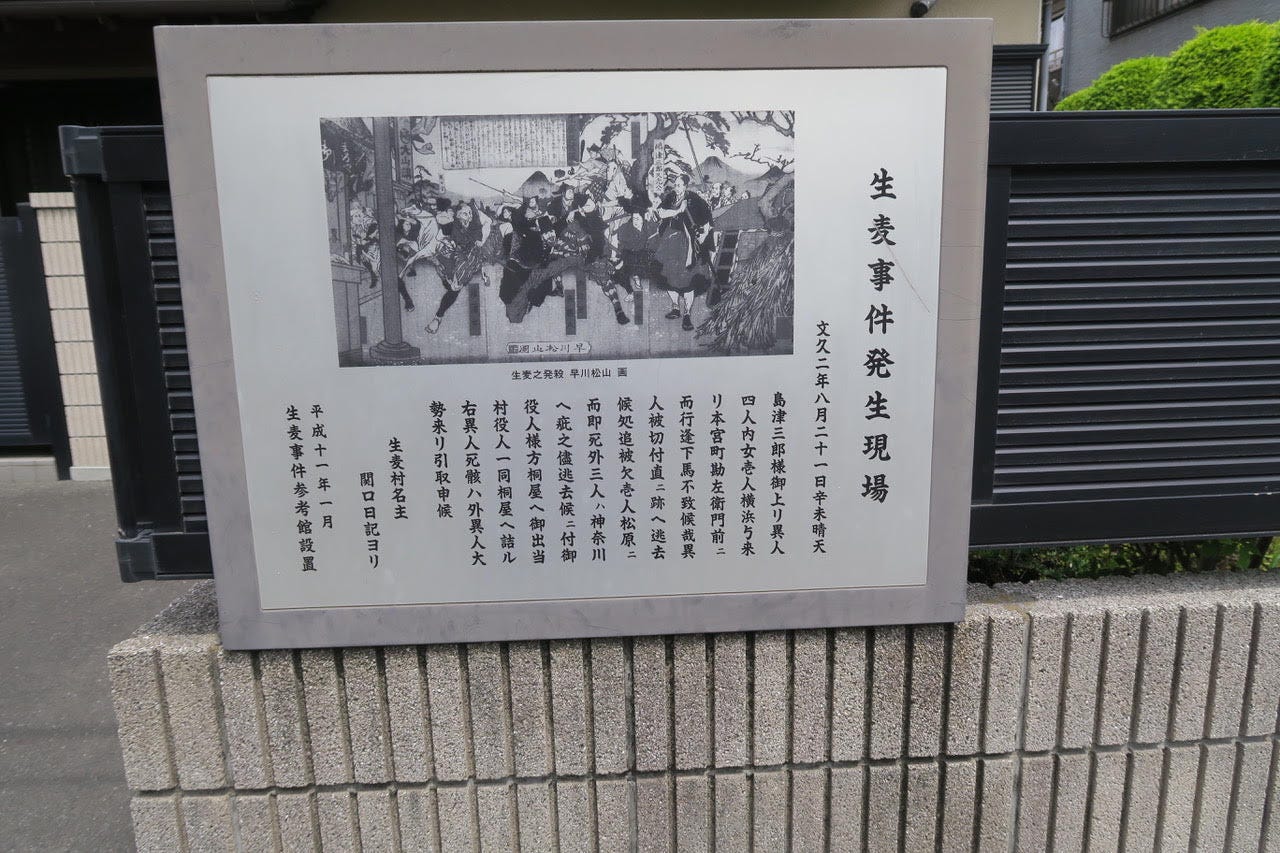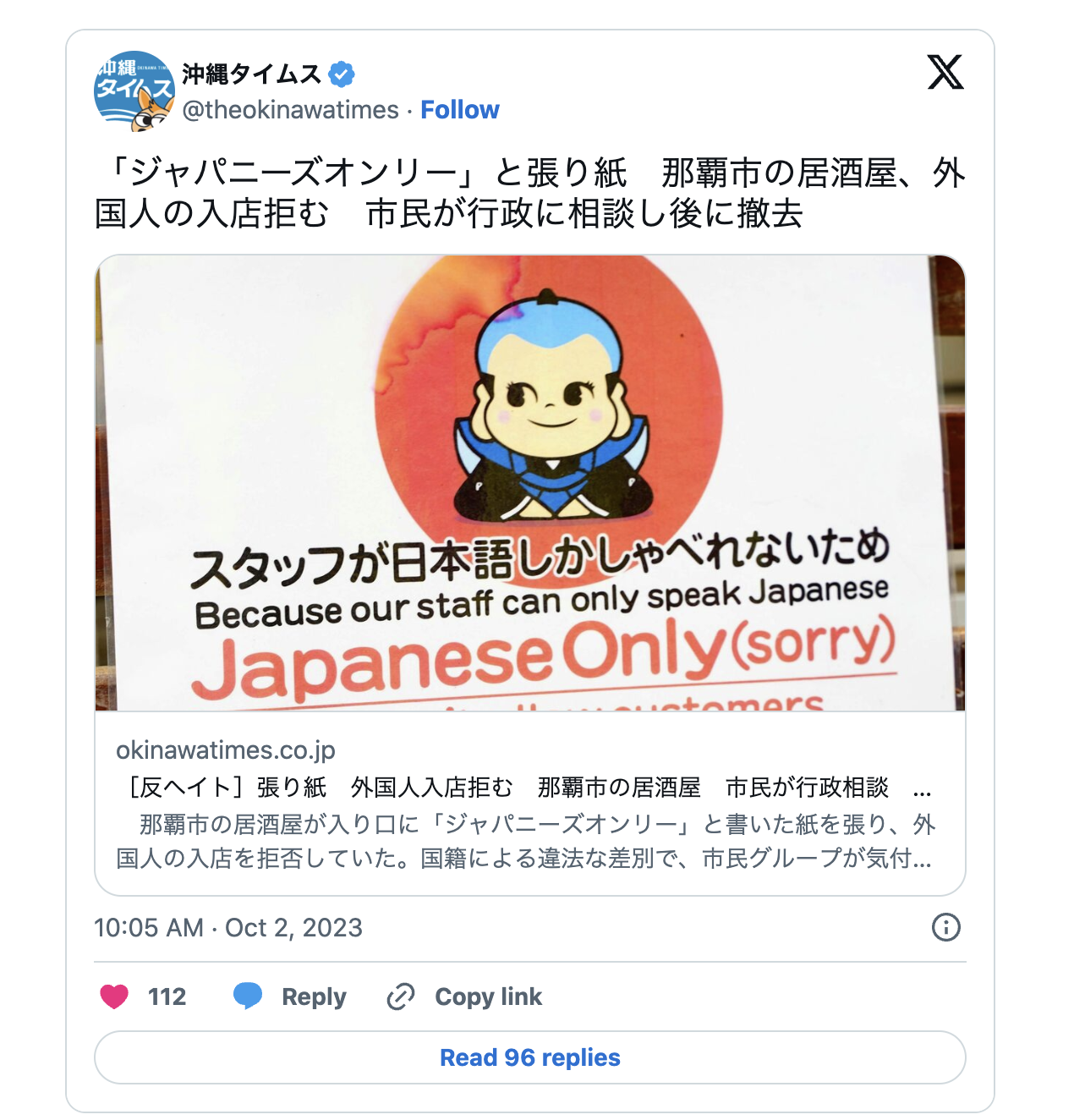mytest
Books, eBooks, and more from Debito Arudou, Ph.D. (click on icon):





![]()


UPDATES ON TWITTER: arudoudebito
DEBITO.ORG PODCASTS on iTunes, subscribe free
“LIKE” US on Facebook at http://www.facebook.com/debitoorg
https://www.facebook.com/embeddedrcsmJapan
http://www.facebook.com/handbookimmigrants
https://www.facebook.com/JapaneseOnlyTheBook
https://www.facebook.com/BookInAppropriate
If you like what you read and discuss on Debito.org, please consider helping us stop hackers and defray maintenance costs with a little donation via my webhoster:

All donations go towards website costs only. Thanks for your support!
Hi Blog. What follows is my latest column, written while I was in Canada witnessing how Trump’s threat of tariffs is affecting Canadian society. Short answer: Not well. But better than I would have expected. Canadians so far seem to be able to separate the US government’s wicked behavior from the treatment of people with American origins. That’s sapient, and hopefully not temporary. I’m not sure the Americans would be as careful if the roles were reversed. A report from the field, with lots of links to sources, and a particular scoop about how current FBI Director Kash Patel owns a company selling racist/secessionist merchandise to Canadians. Screen captures below. It’s a weird era indeed. Debito Arudou, Ph.D.
///////////////////////////////////////////

LETTER FROM CANADA
Subtitle: A country weirdly threatened by its southern neighbor, including racist/secessionist merchandise from Kash Patel, is somehow taking it all in stride
By Arudou Debito. Shingetsu News Agency, Visible Minorities Column 65, April 1, 2025, courtesy https://shingetsunewsagency.com/2025/04/01/visible-minorities-letter-from-canada/
I am currently writing you from Canada, up here taking care of some business.
In the past I’ve lived in Canada for about a year, and now am spending a week enjoying Alberta. One of Canada’s richest provinces due to its oil and natural gas reserves, it’s actually on the front lines in the weird American MAGA push to invade Canada.
ALBERTA IS A SPECIAL PLACE FOR CONSERVATIVES
I’m told that Alberta considers itself the “Texas of Canada.” You quickly see why. People here wear cowboy boots and hats, proudly chow down on Alberta beef with Taber corn, have an annual “Stampede” festival due to its cattle ranching history, and openly eschew the politics of its “pot-head” neighbors to the west (British Columbia) and the “boring” prairie provinces to the east (Saskatchewan and Manitoba).
But Albertans reserve their biggest grievances for Ontario and Quebec, arguing that jealous national politicians “down east” drain them of tax monies and natural resource revenues while ignoring their interests. (Or, horrors, force them to learn French!)
Albertans generally vote for whatever party seems to come closest to a conservativism redolent of the US GOP. Distaste for the ruling center-left Liberal Party and former Prime Minister Trudeau (nicknamed “Turd-o” here) is normal and vocal, especially amongst the gun-toting Ford F-150 pickup-driving rural population.
Alberta has a long history of resisting what it sees as the excessive power of Eastern Canada, dating back to the populist Social Credit Party of the 1930s. Alberta’s current Premier Danielle Smith (the equivalent of a US state governor) has continued that tradition by making it clear that she and Alberta “don’t take marching orders from Ottawa,” the nation’s capital and center of federal government.
Smith argues that national policies have done nothing but harm Alberta’s oil and gas sector. The major population centers of Edmonton and Calgary cycle between boom-and-bust economies depending on constraints put on the fossil fuel market. Wind, solar, and hydroelectric be damned: To them, on-again off-again export fuel pipelines and provincial control over resource revenues make or break this part of Canada.
In addition to passing the Alberta Sovereignty Act in 2022 (to opt out of enforcing “federal rules deemed harmful to Alberta’s interests”), Smith also has a history of promoting MAGA-esque culture war issues, such as opposition to Covid mask mandates. In January, Smith even made the pilgrimage to Mar-A-Lago to meet Donald Trump and kiss the proverbial ring.
The debate shifted significantly in February and March, as Trump insultingly began calling Trudeau “governor” instead of prime minister, unilaterally declared he didn’t recognize the Canada-US border treaty of 1908, and threatened tariffs unless Canada became America’s 51st state. Media reports of Canadians caught up in ICE immigration dragnets have caused shockwaves. The MAGA crowd even put out a map annexing southern-tier Ontario between Windsor and Kingston, which includes Toronto and comprises a good third of Canada’s economy and population.
While signaling her opposition to the tariffs, Smith still took pains to note the need to “coordinate the securing of our border against illegal migrants and drugs moving in both directions” (despite the negligible numbers in both cases)—sops to Trump talking points. Smith also had to debase herself last week in a sit-down with far-right provocateur Ben Shapiro, who called Canada “a silly country that makes maple syrup, hockey and annoying prime ministers.”
ALBERTA HAS A SOFT SPOT FOR “US-EH”
According to the CBC, support for Canada becoming part of the US is highest in Alberta, at 15 percent surveyed, as opposed to nine percent nationwide.
That’s why MAGAts target Alberta for annexation. They’ve worked with Canadian separatists for quite some time, with regular networking and megaphoning on social media. But they’ve also been involved in secession rehearsals.
In 2022, a monthlong Canadian “Freedom Convoy” of truckers protesting Covid mandates set up blockades across Canada and obnoxiously occupied the center of Ottawa. The Convoy turned out to be more than half funded by American donors. The Canadian government also seized an arsenal near the an Alberta-Montana border crossing that was set up by an Albertan militia “supportive of a war with police.”
But now it’s gone beyond funding into actively fomenting.
Shortly after I arrived in Canada, I found in my Twitter feed advertisements for an online store called “Based Apparel” (in Canada, https://thebasedco.com) offering T-shirts and other xenophobic merch.
This includes an American flag in the shape of Alberta entitled “Alberta, USA.” MCGA/MAGA caps with the Canadian maple leaf overlaid with the American flag. A US flag with a maple leaf in the blue field next to a slogan of “US-EH” (a pun on “USA” with the stereotypical Canadian “eh” sentence ending). Coffee cups saying “Singh Horton’s” instead of “Tim Horton’s,” implying they’re no longer a Canadian institution because Sikhs run franchises. (Click on the images for a closer look.)
Or if that’s not racist enough, you can get shirts with parody Community Chest “Go Directly to Jail” Monopoly game cards showing a cop dragging a Sikh saying, “Do not pass go, do not collect pension.” A meme from the “Oregon Trail” video game shows a covered wagon with the caption, “You have died of diversity” (as opposed to “dysentery”). Or you can just settle for a less subtle T-shirt depicting an American eagle f***ing a Canada goose.
Who owns Based Apparel? Kash Patel, the current Director of the FBI and a full-bore Trump sycophant. In 2022 he released a children’s book portraying Trump as a king winning an election against an evil queen (named Hillary) who accuses him of cheating. (Naturally, a wizard named “Kash” saves the day.)
Silliness aside, this merch matters. An official at the highest levels of American government, in charge of federal police investigations, is directly profiting from sowing secession in another country.
THE VIEW FROM THE GROUND
Fortunately, most Canadians, even in Alberta, don’t seem to be falling for the fringe.
A quick trip to any shopping center gives you your first clue. Choosing between imported and locally produced products has never clearer. Stores and supermarkets are very carefully putting maple leafs next to Canadian goods. Banners are up outside businesses proclaiming, “Proudly Canadian owned and operated.”
Much media has focused on Canadian liquor stores summarily removing American bourbon, whisky, and brandy from their shelves. This is a coordinated effort, since Canada’s retail liquor market is generally run by provincial governments. Alberta happens to be the only province with a fully privatized liquor market, but a representative of Real Canadian Superstore, which accounts for nearly a third of Canada’s grocery retail market share, proudly told me they removed all American booze from their shelves at the first sign of Trump tariffs and put it in storage.
Private liquor stores I visited still had a clear “America” section labeled as usual, but when asked about it, the owner said, “It’s my stock, my choice. Where would I put it? So I put it out. But once it sells out, I’m not ordering more.” The Alberta Government supports this, instructing its Gaming, Liquor, and Cannabis agency to “ban” all US alcohol imports and let the remaining retail stock sell out.
In terms of popular conservative sentiment, my Alberta businessman friend (a staunch libertarian and Liz Cheney fan) is adamant that Canadian MAGA fans are nowhere near power. “They’re out there. I see them on my Facebook but they get shouted down. I think it’s a safe bet the vast majority of Canadian conservatives do not support Trump.”
In fact, he laments how Trump’s threats have in fact backfired, draining support from the Conservative Party and delivering it to the Liberals.
In early January the Liberals were polling behind the Conservatives by double digits, and 338Canada projected a landslide victory for the latter. Mere weeks later, the Liberals are back in the lead, projected to take every province and territory except Alberta and Saskatchewan.
This doesn’t usually happen in Canadian politics. The pattern is usually that Canadian voters award power to a party but soon get sick of them. Poll numbers inexorably go down. Then another party gets in until voters get sick of them too.
But thanks to Trump’s bullying (and the fact that the Conservative Party leader Pierre Poilievre is basically echoing Trump’s invective of “woke obsessions” and “broken immigration”), Trudeau’s successor, Mark Carney, looks likely to cruise to victory in the next national election on April 28.
The point is, Trump’s bullying has united Canadians—even Quebec separatists—like never before. “Elbows up!” (a hockey term for standing your ground) has become the national buzzword as Canucks react viscerally to the Trump regime’s obnoxious threats to their freedom and way of life. The national mood is one of anger, and profound sadness that the US seems to have completely lost the plot.
“FORTRESS AMERICA” IS A RECURRING BAD IDEA
Last column I talked about the American propensity to take things to logical extremes. This is more evidence of that.
The US has a habit of periodically whipping itself into a frenzy over metaphorical foreign invasions (even though it hasn’t experienced an actual invasion for nearly two centuries). When that happens, public policies reflect bunker mentalities and the border becomes a fortress wall. This is worse than unseemly; it puts enormous stress on the borderless global economy and the postwar Pax Americana World Order.
The weird thing is that America’s trade war with its northern and southern neighbors, which account for about a third of US trade, pretty much came out of nowhere. In the case of Canada, it’s just plain absurd. Canada and the US have had surprisingly porous borders and hand-in-glove relations for generations. Despite what Trump may claim, no country has been as supportive of both American trade terms and war efforts (participating in basically every postwar American overseas military campaign) as Canada has.
Even in calmer times, “Fortress America” is often the first thing one experiences when approaching the border. I personally have faced harassing American Customs officials waxing racist about the fact I’m a white guy with a Japanese passport (something I’ve never, incidentally, experienced at the Japanese border), and then they would send me to secondary for a few hours until I missed my connecting flight. (My worst experience was at Calgary Airport, where you actually face American police on Canadian soil before you board your plane.)
This attitude doesn’t seem to have rubbed off on Canada. Even in Alberta, the place I would expect it most, I have not experienced any animosity towards people from America, even from the random shopkeepers and clerks I’ve struck up conversations with.
Maybe I’ve been lucky so far, but everyone I’ve talked to basically just laments how the US government is destroying one of the most constructive and productive international relationships in history.
Yes, Canadians will now buy anything but American if they can and take their vacations anywhere but the United States. Travel to the US from Canada has already plummeted by 70 percent so far this year. But so far, Canadians seem to be distinguishing the country (or at least the person on top) from the American people in general.
That’s pretty enlightened. I’m not sure many Americans, with their steady diet of chauvinistic propaganda in the right-wing media ecosystem justifying anything Trump does, would be as discrete.
DUMB IS AS DUMB DOES
The Wall Street Journal has called this “the dumbest trade war in history.” I will echo that and call it the dumbest territorial dispute in history. Last Friday, PM Carney announced that, “The old relationship we had with the United States, based on deepening integration of our economies and tight security and military cooperation, is over,” adding that Canada will have to “dramatically reduce” its reliance on the US.
So much quantifiable opportunity and trust between two prosperous societies has been squandered, for no good reason beyond the venality of one man. As the world seemingly divides into China-Russia-US spheres of influence, this wanton destruction of sovereign goodwill only weakens the North American sphere.
Meanwhile, let’s see if I have another bad experience crossing the US border this time. If I haven’t been renditioned to an ICE facility in Louisiana, you’ll hear again from me next month.
ENDS
======================
Do you like what you read on Debito.org? Want to help keep the archive active and support Debito.org’s activities? Please consider donating a little something. More details here. Or if you prefer something less complicated, just click on an advertisement below.
























